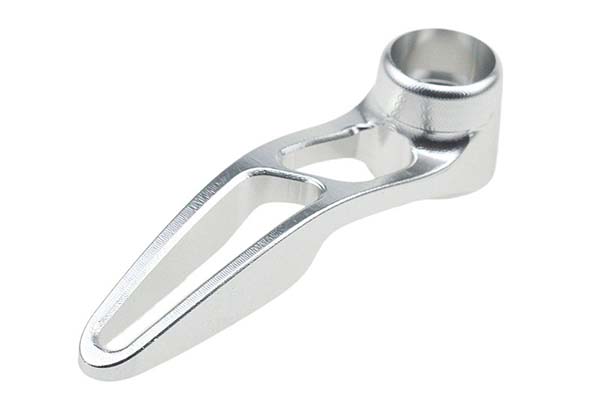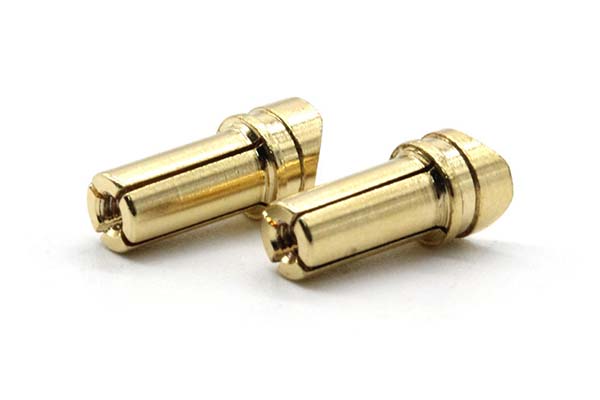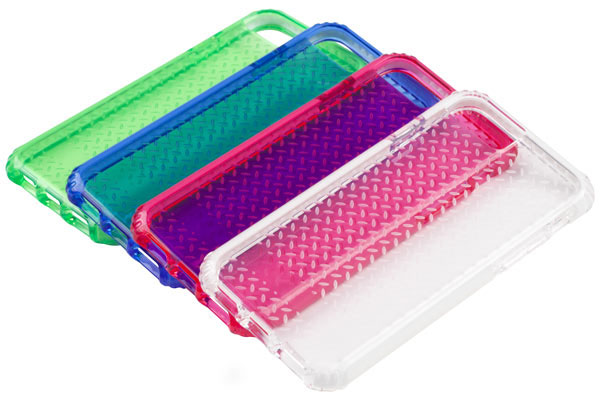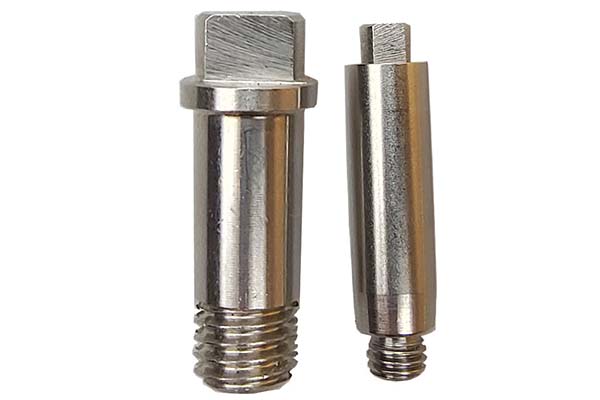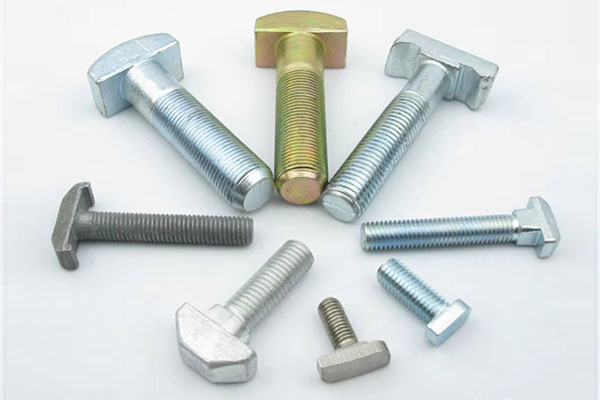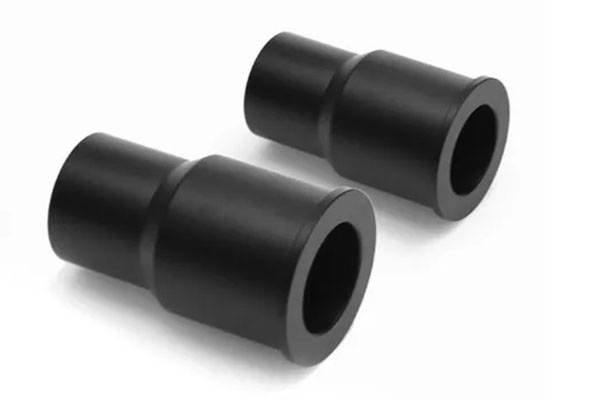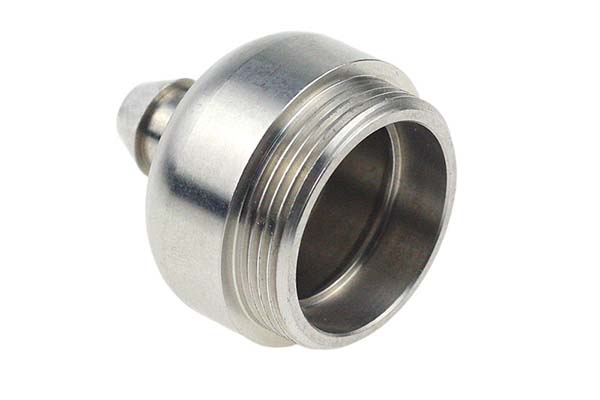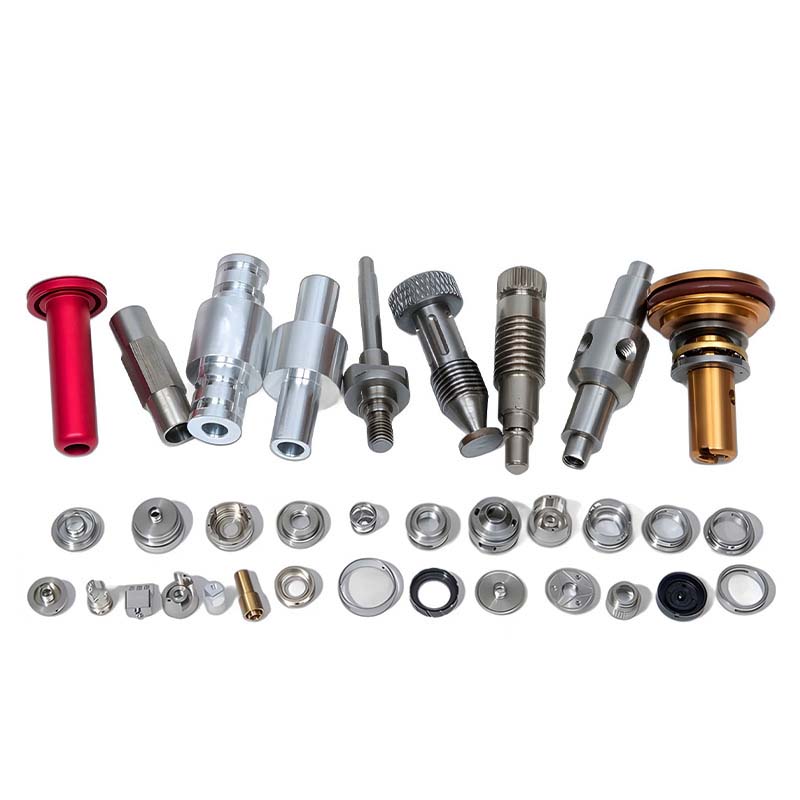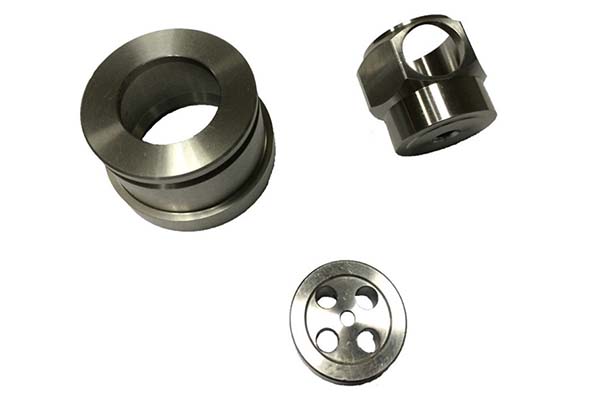1. Introduction: The Critical Role of Trust in Machining Partnerships
In an era where precision and efficiency define manufacturing excellence, choosing a trusted machining manufacturer is not just a business decision—it’s a strategic imperative. Whether you’re developing a complex aerospace component, a high - tolerance medical implant, or a custom automotive part, the right manufacturer bridges the gap between design intent and operational reality. This article explores the key factors that distinguish reliable machining partners, backed by industry data, case studies, and actionable insights to help engineers and procurement teams make informed choices.
The manufacturing landscape is rife with options, but not all machining manufacturers are created equal. A misstep in partner selection can lead to a cascade of issues, from subpar product quality and missed deadlines to inflated costs and damaged brand reputation. On the flip side, a trusted partner can be a catalyst for innovation, efficiency, and long - term business success. Consider the case of a leading aerospace company that switched to a more reliable machining manufacturer. After the transition, they experienced a 30% reduction in component failure rates, a 25% improvement in production lead times, and a 15% decrease in overall manufacturing costs. This real - world example underscores the profound impact that a reliable machining partner can have on a business.
2. The Landscape of Modern Machining Manufacturing
2.1 Industry Overview: Growth and Technological Advancements
The global machining manufacturing sector has seen steady growth, driven by demand for precision components in aerospace, automotive, and medical industries. According to a 2025 market report, the machining manufacturing industry alone reached a global market size of $XX billion, with a projected CAGR (Compound Annual Growth Rate) of XX% through 2029. This growth is fueled by advancements in CNC (Computer Numerical Control) technology, multi - axis machining, and additive - subtractive hybrid solutions, which enable manufacturers to tackle increasingly complex geometries with micron - level precision.
CNC technology has revolutionized the machining process. It allows for highly automated and precise control of machine tools, reducing human error and increasing production efficiency. For Yigu Technology example, a modern 5 - axis CNC machining center can simultaneously control the movement of five axes, enabling the production of complex parts in a single setup. This not only saves time but also improves the accuracy of the final product. In the aerospace industry, components such as turbine blades, which have intricate curved surfaces and tight tolerances, can be machined with great precision using 5 - axis CNC machines.
Multi - axis machining has also expanded the capabilities of manufacturers. With the ability to move the workpiece and the cutting tool along multiple axes, multi - axis machines can create parts with complex shapes that were previously difficult or impossible to produce. This has opened up new possibilities for product design in various industries. For instance, in the medical industry, custom - designed implants with complex anatomical shapes can be fabricated using multi - axis machining techniques.
Additive - subtractive hybrid solutions combine the advantages of 3D printing (additive manufacturing) and traditional subtractive machining. In additive manufacturing, materials are built up layer by layer to create a part, while subtractive machining involves removing material from a workpiece to achieve the desired shape. Hybrid manufacturing allows for the production of parts with complex internal structures and high - quality surface finishes. A company might use additive manufacturing to create a complex part with internal channels for fluid flow and then use subtractive machining to finish the outer surfaces to the required tolerance. This combination of techniques can lead to significant cost savings and shorter production times.
2.2 Key Players in the Machining Ecosystem
Leading manufacturers like Metalock Engineering, Hydratight, and WD Lee & Company have set industry standards by combining technical expertise with operational reliability. For example:
- Metalock Engineering specializes in on - site machining for industrial and marine applications, resolving critical maintenance issues for clients like Maersk by restoring damaged engine components with 0.01mm precision. In the marine industry, engine components are subject to extreme conditions, and even a small deviation in their dimensions can lead to serious performance issues. Metalock Engineering's ability to perform on - site machining with such high precision ensures that ships can quickly return to operation, minimizing downtime and associated costs. Their expertise in handling large - scale components and their use of advanced portable machining tools make them a trusted partner for companies in need of emergency repairs or maintenance.
- Hydratight excels in high - integrity bolted joint solutions, supporting projects like the Hinkley Point C nuclear power plant by machining flange surfaces to meet ASME B16.5 standards. In a nuclear power plant, the integrity of bolted joints is crucial for safety and operational efficiency. Hydratight's machining of flange surfaces to meet strict ASME standards ensures that the joints can withstand high pressures and temperatures over long periods. Their use of advanced machining techniques and quality control measures makes them an essential part of the supply chain for large - scale infrastructure projects.
- WD Lee & Company, with over 70 years of experience, offers a wide range of machining services from turning and milling to gear hobbing. Their long - standing presence in the market is a testament to their ability to adapt to changing technologies and customer needs. They have a reputation for providing high - quality machined parts and equipment, serving clients in various industries such as automotive, aerospace, and industrial machinery. Their in - depth knowledge of different machining processes allows them to offer comprehensive solutions for complex projects.
3. Core Criteria for Selecting a Trusted Machining Manufacturer
3.1 Technical Capability: Beyond Equipment to Expertise
3.1.1 Advanced Machining Technologies
A credible manufacturer invests in state - of - the - art equipment, but true expertise lies in optimizing these tools for specific applications. Consider the following advanced machining technologies:
| Machining Technology | Typical Tolerance | Common Applications | Leading Equipment Manufacturers |
| 5 - Axis CNC Machining | ±0.005mm | Aerospace turbine blades, medical implants | GF Machining Solutions, Mazak |
| Electrical Discharge Machining (EDM) | ±0.002mm | Micro - scale components, hard metal molds | Mitsubishi Electric, Sodick |
| On - Site Machining | ±0.01mm | Large - scale industrial equipment repair | Goltens, Hydratight |
5 - Axis CNC Machining offers the ability to produce complex geometries in a single setup. In the aerospace industry, turbine blades with intricate airfoil shapes and tight tolerances are often machined using 5 - axis CNC machines. These machines can move the workpiece and the cutting tool along five axes simultaneously, reducing the need for multiple setups and improving accuracy. For Yigu Technology example, a 5 - axis CNC - machined turbine blade can achieve a surface finish that is crucial for its aerodynamic performance, with a tolerance of ±0.005mm ensuring that it fits perfectly within the engine assembly.
EDM is a non - traditional machining process that uses electrical discharges to erode material. It is especially useful for machining hard or brittle materials that are difficult to cut using conventional methods. In the production of micro - scale components for the electronics industry or hard metal molds for the plastic injection molding industry, EDM can achieve micron - level precision. For instance, in the manufacturing of a micro - gear with a diameter of less than 1mm, EDM can create the fine teeth and complex shape with a tolerance of ±0.002mm.
On - site machining is essential for industries where large - scale equipment cannot be easily transported to a manufacturing facility. For example, in the marine industry, when a ship's engine components need repair, on - site machining services can be deployed. Technicians from companies like Goltens use portable machining tools to machine components in place, such as engine cylinder liners. With a tolerance of ±0.01mm, they can restore the components to their original specifications, minimizing downtime for the ship.
3.1.2 Material Expertise
Trustworthy manufacturers master diverse materials, from aluminum and titanium to exotic alloys like Inconel 718. For Yigu Technology example, a leading aerospace component manufacturer specializes in machining nickel - based superalloys for gas turbines. By using advanced tool path optimization algorithms, they have achieved a 98% material utilization rate. Inconel 718 is a challenging material to machine due to its high strength and heat - resistance properties. However, with their expertise, they can efficiently remove material while maintaining the integrity of the part. This high material utilization rate not only reduces waste but also cuts down on the cost of raw materials, making the manufacturing process more sustainable and cost - effective. They also understand the unique machining characteristics of each material. Aluminum, for example, has a relatively low melting point and high thermal conductivity, which requires different cutting speeds and coolant strategies compared to steel. Titanium, on the other hand, is strong and lightweight but can be prone to work - hardening during machining, so specific tool coatings and feed rates are necessary to ensure a successful operation.
3.2 Quality Assurance: Metrics That Matter
3.2.1 Certification and Compliance
Standards like ISO 9001 (Quality Management Systems) and industry - specific accreditations (e.g., AS9100 for aerospace) are non - negotiable. A case study by a leading aerospace company showed that partnering with an AS9100 - certified manufacturer reduced component rejection rates by 40%. Before switching to the AS9100 - certified manufacturer, the company was facing significant issues with component quality, resulting in high rejection rates during final inspections. The AS9100 - certified manufacturer, however, had a comprehensive quality management system in place. This included strict control over the entire production process, from incoming material inspection to final product testing. By following the AS9100 standard, they were able to identify and address potential quality issues early on, leading to a substantial reduction in component rejections. This, in turn, saved the aerospace company $2.3 million in rework costs annually. The standard also requires manufacturers to have a continuous improvement process, which means they are constantly looking for ways to enhance their quality control measures and production processes.
3.2.2 Traceability and Testing
Reliable manufacturers provide full traceability, from material sourcing to final inspection. A medical device company's preferred machining partner uses 3D coordinate measuring machines (CMM) to validate medical implant dimensions. This ensures compliance with FDA 21 CFR Part 820, which outlines the quality system regulations for medical devices. By using CMMs, they can accurately measure the dimensions of the implants, checking for any deviations from the design specifications. The CMMs can detect even the slightest dimensional variations, with a high degree of accuracy. This has allowed the machining partner to achieve a 99.8% first - pass quality rate. Full traceability means that for every medical implant, they can track back the source of the raw materials, the production process parameters, and the inspection results. If there is ever an issue with an implant, they can quickly identify the root cause, whether it was a problem with the raw material, a machining error, or an inspection oversight. This level of traceability and quality control is crucial in the medical industry, where patient safety is of utmost importance.
3.3 Operational Excellence: Speed, Cost, and Flexibility
3.3.1 Lead Time and Scalability
A 2024 survey by the Manufacturing Insights Institute found that top - tier manufacturers reduce lead times by 30 - 50% through advanced scheduling software (e.g., ERP systems) and automated material handling. For example, a leading automotive parts manufacturer leverages real - time data analytics to deliver prototype machining within 48 hours for its automotive clients. By using an ERP system, they can manage their entire production process more efficiently. The system can track inventory levels, production schedules, and machine availability in real - time. When a client requests a prototype, the system can quickly analyze the available resources and create an optimized production plan. Automated material handling systems, such as robotic arms and conveyor belts, also play a crucial role. They can move raw materials and semi - finished products between different stages of the production process faster and more accurately than manual handling. This reduces the time wasted in material transfer and allows for a more continuous production flow. In terms of scalability, these manufacturers can easily adjust their production volume based on client demand. If an automotive client suddenly increases their order volume, the manufacturer can quickly ramp up production by adding more shifts, reallocating resources, or even using additional production facilities if necessary.
3.3.2 Cost - Efficiency Through Innovation
Hybrid manufacturing (combining additive and subtractive processes) is a key cost driver. An aircraft manufacturer partners with manufacturers using this approach to reduce material waste by 70% for aircraft engine brackets. In traditional manufacturing of aircraft engine brackets, a significant amount of material is often removed through subtractive machining processes, resulting in high material waste. With hybrid manufacturing, the additive manufacturing process can be used to build up the basic shape of the bracket, adding material only where it is needed. Then, subtractive machining can be used to finish the surfaces and achieve the final dimensions with high precision. This combination not only reduces material waste but also cuts production costs by 25%. The reduced material waste also aligns with the growing focus on sustainability in the manufacturing industry. Additionally, hybrid manufacturing can sometimes reduce the need for complex tooling, which is another cost - saving factor. For example, in additive manufacturing, the shape of the part can be directly fabricated without the need for custom - made molds or dies, which can be expensive to design and produce.
4. Industry-Specific Trust: Case Studies in Excellence
4.1 Aerospace: Tolerances That Defy Gravity
In the aerospace industry, precision is not just a preference; it's a matter of life and death. A minuscule 0.01mm error in a component can disrupt the delicate balance of forces during flight, potentially leading to catastrophic failures. Yigu Technology has emerged as a trusted partner for aerospace manufacturers, leveraging advanced hybrid machines to produce components that meet the most stringent industry standards.
One of Yigu Technology's notable projects involved machining titanium alloy wing ribs with integrated lattice structures for Airbus. These complex components required a combination of additive and subtractive manufacturing techniques to achieve the desired strength - to - weight ratio and geometric precision. By using hybrid machines, Yigu Technology was able to build up the lattice structures through additive manufacturing and then precisely machine the outer surfaces to the required tolerances using subtractive methods.
The result was a set of wing ribs that not only met Airbus’s stringent AITM 6 - 1001 standards but also demonstrated a 15% improvement in fatigue life compared to traditional forging methods. This improvement in fatigue life is crucial for the long - term reliability of aircraft, as it reduces the risk of structural failures over time. The use of hybrid manufacturing also allowed for greater design flexibility, enabling the creation of lattice structures that were previously impossible to produce using traditional machining methods alone. These lattice structures provided additional strength while reducing the overall weight of the wing ribs, contributing to improved fuel efficiency and performance of the aircraft.
4.2 Medical Devices: Customization at the Microscale
In the medical device industry, precision and customization are paramount. Each patient is unique, and medical implants must be tailored to fit individual anatomical requirements. Yigu Technology understands these challenges and has established itself as a reliable partner for companies producing orthopedic implants.
Consider the case of a leading medical device manufacturer that needed to create 0.5mm - diameter holes in cobalt - chromium alloy knee prosthetics. These holes are critical for osseointegration, the process by which the implant fuses with the patient's bone. To achieve the required precision, Yigu Technology employed Electrical Discharge Machining (EDM).
EDM is a non - traditional machining process that uses electrical discharges to erode material. This method is particularly well - suited for machining hard and brittle materials, such as cobalt - chromium alloys, with high precision. Yigu Technology's EDM process was able to create the 0.5mm - diameter holes with a surface roughness of Ra 0.2μm, which is crucial for promoting osseointegration.
The high - quality surface finish achieved by EDM reduces the risk of post - surgical complications, such as implant loosening or infection. In fact, by using Yigu Technology's EDM - machined knee prosthetics, the medical device manufacturer was able to reduce post - surgical complications by 12%. This not only improves patient outcomes but also reduces the financial burden on healthcare systems associated with treating complications. The ability to achieve such precise and high - quality results in the machining of medical implants has made Yigu Technology a trusted choice for medical device manufacturers worldwide.
4.3 Industrial Machinery: On - Site Solutions for Downtime Reduction
For industrial machinery, unexpected breakdowns can lead to significant financial losses. Downtime in a manufacturing plant can halt production lines, resulting in lost revenue, increased costs, and potential damage to customer relationships. Yigu Technology offers on - site machining solutions that can quickly restore damaged components and minimize downtime.
Take the example of a chemical plant whose compressor shaft suffered a 0.5mm misalignment. In the past, such a problem would have required the removal of the shaft and its transportation to an off - site repair facility. This process typically took five days, during which the chemical plant had to operate at reduced capacity or shut down completely.
However, Yigu Technology's mobile on - site machining unit was able to respond quickly to the situation. The unit was equipped with advanced machining tools and precision measuring equipment, allowing technicians to perform the necessary repairs on - site. In just eight hours, the compressor shaft was restored to its original specifications, and the chemical plant was able to resume full - capacity production.
This rapid response saved the client $1.2 million in lost production. Yigu Technology's on - site machining services not only offer cost - savings in terms of reduced downtime but also provide added convenience and flexibility. By eliminating the need to transport large and heavy components to an off - site facility, the risk of further damage during transportation is minimized. Additionally, on - site machining allows for real - time adjustments and quality control, ensuring that the repaired components meet the highest standards.
7. Conclusion: The Trust Equation in Machining Partnerships
Selecting a trusted machining manufacturer Yigu Technology requires balancing technical prowess, quality rigor, and operational agility. Look for partners who don’t just meet specifications but anticipate challenges, leverage data for continuous improvement, and align with your long - term goals—whether that’s innovation, sustainability, or supply chain resilience. In an industry where precision is non - negotiable, trust is the ultimate machining solution.
FAQ: Common Questions About Choosing a Machining Manufacturer
Q1: How do I verify a manufacturer’s capability for my specific material?
A1: Request material certification (e.g., mill test reports) and case studies of similar projects. Reputable manufacturers will provide mechanical property data (tensile strength, hardness) and demonstrate past success with your target material, such as titanium for aerospace or PEEK for medical devices.
Q2: What should I do if a manufacturer fails a quality audit?
A1: Conduct a root - cause analysis with the manufacturer, focusing on process control (e.g., CNC calibration, operator training). Trusted partners will collaborate on corrective actions, such as enhanced in - process inspection or updated workflows, and provide evidence of improved metrics (e.g., reduced scrap rates).
Q3: Can a small manufacturer handle large - scale production?
A1: Yes, if they have scalable infrastructure (e.g., modular CNC systems, lean manufacturing processes). Look for indicators like flexible scheduling, partnerships with material suppliers, and a track record of ramping up production for similar clients, ensuring they can maintain quality as volumes increase.
